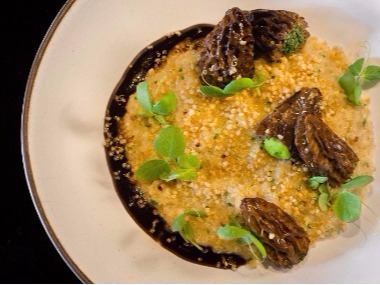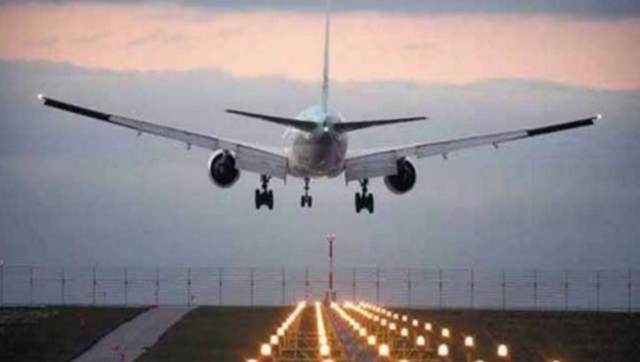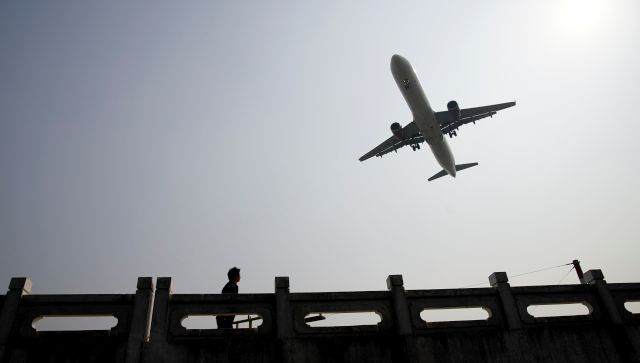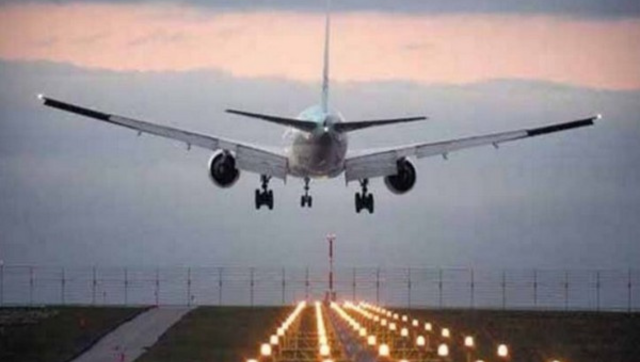As a measure of abundant caution, the Directorate General of Civil Aviation (DGCA) has directed Indigo and Go Air not to fly A320 Neo planes to Port Blair in the Andamans. According to news reports there have been 69 incidents of engine glitches in the planes over the past 18 months, including on 3 January when smoke was detected on one such plane on the Chennai-Kolkata route.
Meanwhile, the Airports Economic Regulatory Authority (AERA) has allowed Delhi’s airport operator to charge carriers for baggage screening to recoup its investment in the scanning equipment. While both the interventions are necessary and welcome, an area that has escaped regulatory oversight resulting is the pricing of food and beverages at airports. Because of high rentals charged by the airport operators, especially the private ones to maximise their revenue, food is exorbitantly priced. The charges and costs are so misaligned that even former finance minister P Chidambaram who has a lucrative legal practice made his dismay known.
“At Chennai Airport Coffee Day I asked for tea. Offered hot water and tea bag, price Rs 135. Horrified, I declined. Was I right or wrong?” Chidambaram tweeted at 6.40 am on 24 March, last year. In another tweet that day he said: “Coffee Rs 180. I asked who buys it?” Answer was ‘many.’ Am I outdated?”
The former finance minister’s query elicited no tweets of agreement. Instead he was scolded. Rajive Sood who tweets as @SoodRajive replied, “You are not outdated Sir… You are just being Smart. These rates are not just new… always been there since you started flying. This tweet is just to identify with common man which you are not … miserably failed this time.”
Sood’s Twitter account describes him as an Indian army veteran. He was wrong in asserting that food prices at airports were always exorbitant. When Indian Airlines and Air India had a monopoly it is unlikely that the Airports Authority of India made a killing on the food it sold. But that was before the days of mass air travel caused by the entry of private airlines, and the privatisation of airports.
Chidambaram also got no sympathy from journalist and Economic Times columnist Reshmi Dasgupta who tweets as @ReshmiDG. “[Y>ou were horrified about being charged for chai, you mean. It IS a private business after all, not a PSU!,” she said, as if private businesses had the liberty to prey on captive customers
Since August last year, the Maharashtra government has said that food at multiplexes will be sold at maximum retail prices (MRP) and outside food can be taken into them. It is another matter that there is no sanctity to MRPs and a label change is all that is needed to charge a higher price for a branded product. But food from outside, gives viewers and alterative, and can keep prices in check.
The state government’s decision followed the Bombay High Court’s observations while hearing a public interest suit on the issue. Agitation, at times violent, by the Maharashtra Navnirman Sena (MNS) also forced the government to act. The share prices of multiplex operators, PVR and Inox Leisure, fell by 15 percent and 22 percent after the decision was announced.
Box office collections account for more than half of the revenue of the multiplex companies. But they have to share it with producers and distributors. According to www.equitymaster.com , the food and beverage business accounted for 26.7 percent of PVR’s and 22.7 percent of Inox’s revenues in the last financial year. The segment’s gross margin is as high as 75 percent, it said.
It can be argued that people have a choice of multiplexes and movie-going is not an essential activity. But in cities where people live cheek-by-jowl in small apartments and there are few open spaces or avenues for social entertainment, movie-going is a stress-busting activity.
In the case of airports, people do not have a choice. They are monopolies. Though a large number of Indians cannot afford air travel, it is no longer a luxury. Passengers must have a choice of affordable food, especially when they are required to fly at odd hours or spend time at airports to catch connecting flights.
The spokesperson of Mumbai airport justified high food prices on the ground that an airport is “premium property.” She said the cost of airport operations is high and rentals have to match. “You cannot compare an airport with a railway station. Air travel is a luxury,” she asserte, though fares on some of the trunk air routes are often comparable or even lower than that of air-conditioned first and second class rail travel. Mumbai airport, the spokeswomen said, offers a variety of food. But she failed to observe that the diverse offerings are priced uniformly high.
The Delhi airport spokesperson said the outlets there “offer a range of products are various prices based on the passenger profile at the terminals.” That is certainly not the experience of this correspondent. “All pre-packed items are sold at MRP, as decided by the manufacturer or brand”, Delhi airport spokesperson said. This may be true of bottled water and snacks dispensed through machines. “The rest of the products are priced on the basis of the cost involved in the production of superior quality of food and beverages,” the spokesperson said. That can be contested. It does not cost nearly Rs 200 to make a cup of coffee. “We conduct regular audits to make sure that our concessionaires do not overcharge,” the spokesperson said. When the airport operators are themselves responsible for jacking up rentals, then how can they regulate the prices charged by their tenants?
The Airports Economic Regulatory Authority (AERA) of India should put forth a regulation but does not seem to have the appetite for it. An email to its chairman, S Machendranathan, was directed to an official. After 12 days and repeated remainders, the official said AERA does not regulate food prices at airports; it is concerned only with aeronautical services.
Gajendra Haldea—adviser to Montek Singh Ahluwalia, the then deputy chairman of the erstwhile Planning Commission—says AERA will have to consider the revenue earned by airport operators from other services while fixing the rates for aeronautical services. In a dissent note in December 2005, he had pointed out deficiencies in the evaluation of bids for the award of concessions to Delhi and Mumbai airports.
But our ministers and officials do not regard upholding public interest as an obligation. In the run-up to the 2010 Commonwealth Games, the government allowed the GMR group, which won the concession to operate Delhi airport to charge passengers a development fee to bridge the gap in funding for modernisation of the airport. Passengers paid though they did not get the service they were paying for. Instead, the government should have collected the money for investment in the airport and obliged the operator to discount future charges on passengers.
Even law-makers are blasé about skyrocketing prices at airport food outlets. An analysis of relevant questions asked in Parliament showed MPs to be more interested in the number of shops at airports and the rentals being charged on them. Cronyism is rampant in the civil aviation sector. It is time passengers woke up and forced the government to stop the exorbitant rates being charged on food and beverages at airports.
(The author is senior consultant to ICRIER and blogs on www.smartindianagriculture.com. He tweets @smartindianagri)
To keep watching India’s No. 1 English Business News Channel – CNBC-TV18, call your Cable or DTH Operator and ask for the Colors Family Pack (inclusive of 24 channels), available for Rs. 35/- per month, or subscribe to the channel for Rs. 4/- per day.
To keep watching the Leader in Global Market & Business News – CNBC-TV18 Prime HD, call your Cable or DTH Operator and ask for the Colors Family HD Pack (inclusive of 25 channels), available for Rs. 50/- per month, or subscribe to the channel for Rs. 1/- per day.


)




)
)
)
)
)
)
)
)